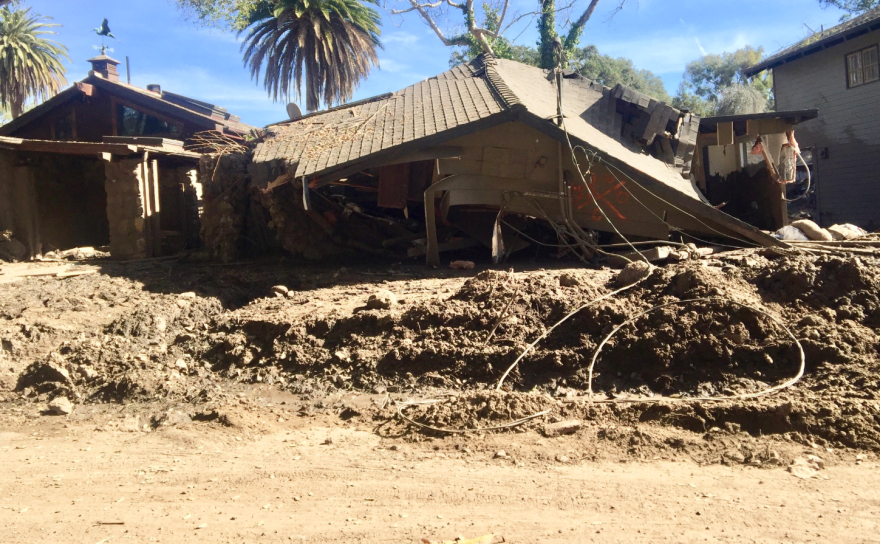It’s been just about nine months since the Montecito Debris Flow killed 23 people and destroyed homes, bridges and roadways. Now that the immediate pain of the disaster has abated a bit, but before too much time passes that people start forgetting, a group of researchers at UC Santa Barbara are studying the disaster in a coordinated effort.
“This is a big collaborations between geologists and sociologists and social psychologists and political scientists, so folks who study both the natural system and the humans in the systems, to understand the causes and consequences of the debris flow,” said Sarah Anderson, an associate professor of environmental politics at UCSB’s Bren School of Environmental Science & Management.
She and her colleagues are sending out a survey to Montecito and Santa Barbara residents.
“We will be asking residents the whole battery of questions—from things about themselves so we can get a sense of the population, to questions about disaster preparedness, questions about what happened to them during the disaster, questions about the evacuations for the disaster and questions about their attitudes and experiences,” Anderson said.
A key topic researchers are interested in is what people did during the subsequent evacuations and why—or why not.
“We're interested in understanding Montecito residents’ experience because we think it has lessons for other communities that might be at similar risk, and we want to be able to think about how do we help other communities be prepared, also,” Anderson said.
Besides the more sociological studies like Anderson’s, other scientists are spending their days measuring and recording all the physical consequences of the debris flow.
All residents in the Montecito zip code can expect to receive a postcard in the mail, inviting them to take the survey online. The researchers will follow this up by sending a paper version of the survey to Montecito addresses. Anderson says the UCSB researchers hope as many people will participate as possible, and they hope many will agree to be interviewed in-depth.
Results are expected in early 2019.







